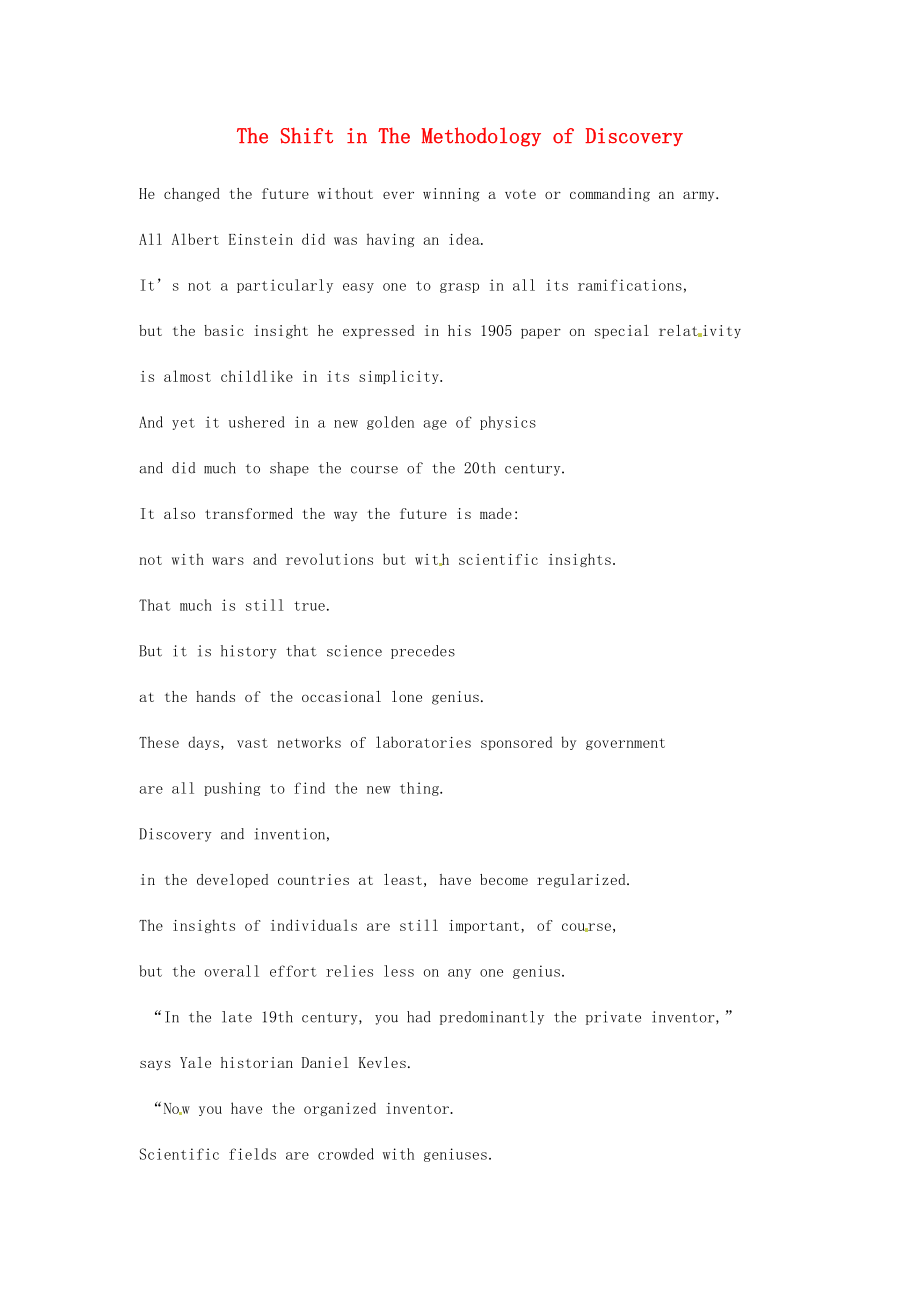《高中英語(yǔ) 晨讀英語(yǔ)美文60篇 38 The Shift in The Methodology of Discovery素材》由會(huì)員分享,可在線閱讀��,更多相關(guān)《高中英語(yǔ) 晨讀英語(yǔ)美文60篇 38 The Shift in The Methodology of Discovery素材(2頁(yè)珍藏版)》請(qǐng)?jiān)谘b配圖網(wǎng)上搜索��。
1��、The Shift in The Methodology of Discovery
He changed the future without ever winning a vote or commanding an army.
All Albert Einstein did was having an idea.
It’s not a particularly easy one to grasp in all its ramifications,
but the basic insight he expressed in his 1905 paper on special relat
2��、ivity
is almost childlike in its simplicity.
And yet it ushered in a new golden age of physics
and did much to shape the course of the 20th century.
It also transformed the way the future is made:
not with wars and revolutions but with scientific insights.
That much is still true.
But it is h
3��、istory that science precedes
at the hands of the occasional lone genius.
These days, vast networks of laboratories sponsored by government
are all pushing to find the new thing.
Discovery and invention,
in the developed countries at least, have become regularized.
The insights of individuals a
4��、re still important, of course,
but the overall effort relies less on any one genius.
“In the late 19th century, you had predominantly the private inventor,”
says Yale historian Daniel Kevles.
“Now you have the organized inventor.
Scientific fields are crowded with geniuses.
Everybody’s worki
5��、ng at the big problems all the time.”
This shift in the discovery has complicated matters.
It is chiefly responsible for the complexity of machines,
but also for the growing complexity of the act of inventing and building.
The Pentagon awards a contract for a new jet fighter to a prime contracto
6��、r,
which passed the various systems and subsystems and components down
through layers of subcontractors.
“Henry Ford could understand every piece of his assembly line,”
says Don Kash, a technology expert at George Mason University in Washington D.C.,
“Nobody can do that at Toyota.”
What’s di
7��、fferent now, though, is now comfortable we’ve become with complexity.
Innovation is part of our lives in a way it hasn’t been for previous generations.
In 1970,
Alvin Toffler argued in Future Shock that technology was changing society so quickly
that a person in the span of single lifetime would
8��、 find himself a stranger in his own culture.
Toffler’s book struck home
because many people felt that new technologies were bringing about change
at a pace that was disorienting and not a little disturbing.
These days we’ve learned how to ride the rocket of innovation.
“My father thought the world would be the same,” says Kash.
“My children wake up every day thinking the world will be different.”
 高中英語(yǔ) 晨讀英語(yǔ)美文60篇 38 The Shift in The Methodology of Discovery素材
高中英語(yǔ) 晨讀英語(yǔ)美文60篇 38 The Shift in The Methodology of Discovery素材

